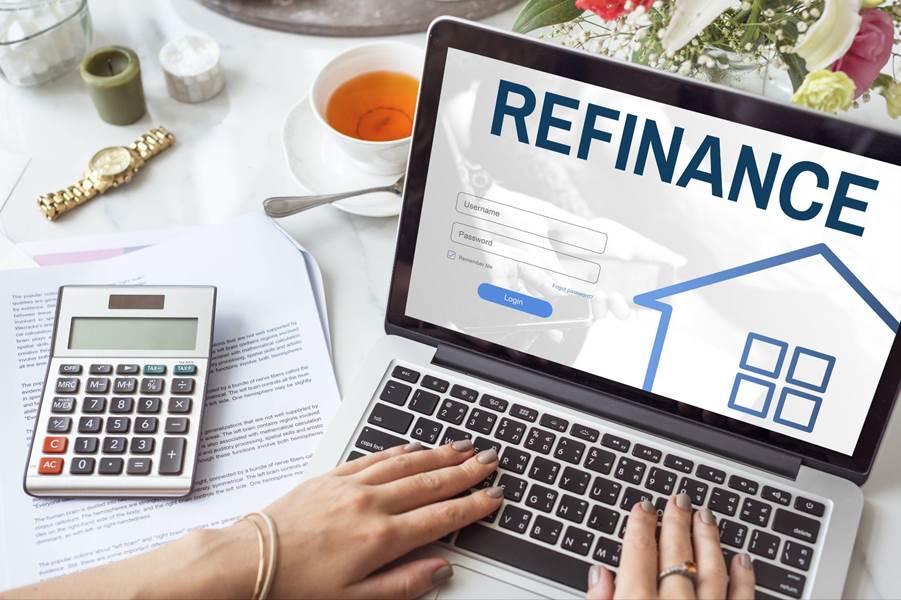Mortgage Refinance
6 Things to Consider Before Refinancing Your Home

There are several great reasons you may want to refinance your mortgage. Perhaps you’d like to take advantage of a lower interest rate, shorten your loan term, access home equity funds or switch your mortgage type. While refinancing is an excellent option for many homeowners, there are a few things you’ll need to consider before determining if it’s the right decision for you. Let’s explore what you should know—and ask yourself—when thinking about home refinancing.
How to Refinance a House: Top 6 Things to Consider
1. Your Reason Why
The first thing to consider when starting your refinancing journey is the specific reason why you want to replace your current loan with a new one. What is your financial goal? Here are some questions to ask yourself:
- Do you want to lower your monthly payment?
- Do you want to shorten or lengthen your term?
- Do you want to convert your mortgage, such as switching from an adjustable-rate to a fixed-rate loan, to avoid a payment jump?
- Do you want to access your home equity for home improvements?
- Do you want to do a cash-out refinance to consolidate debt?
- Do you want to eliminate the need to have mortgage insurance?
Refinancing your home can be a wise strategy for achieving your goals. A solid understanding of your endgame will help guide you as you start to compare lenders and refinancing options.
2. Your Credit

https://www.shutterstock.com/g/anyaberkut
Your credit is just as important when refinancing your home as during your initial purchase. Lenders still consider your credit score, credit history and debt-to-income ratio (DTI) as part of the loan approval process. To qualify for the best rates, lenders typically look for a credit score of at least 740.
If your credit score is on the lower side, you may want to explore loan options with less stringent credit requirements, such as FHA loans. On the other hand, a higher credit score may allow you to qualify for more favorable rates, thus, putting a home refinance to your advantage.
3. Your Home’s Equity
Knowing how much equity you have in your home is key if you’re considering a refinance. Home equity is the difference between your home’s current value and mortgage balance. For example, if your home’s market value is $500,000 and your mortgage balance is $200,000, your home equity amount is $300,000 or 60% of the market value.
To qualify for refinancing, it may help to have at least 20% equity in your home, but it isn’t necessary by any means.
The more home equity you have, the more you could potentially tap into if you do a cash-out refinance. A cash-out refinance is when you refinance your current home loan for a higher amount. You’ll receive the difference at closing and can use it as your wish for debt consolidation, home improvements, education and more.
4. The Costs of Refinancing
Refinancing to a lower rate or shorter term can save you money, but the process isn’t free. Many of the fees and closing costs you paid when you first purchased your home apply with a refinance. Costs may include:
- Origination fee
- Appraisal fee
- Attorney fees
- Title search and insurance fee
- Application fee
- Escrow charges, including property taxes and homeowners insurance premiums
Closing costs can vary widely based on rate, loan program and the situation overall. Depending on the lender and your amount of available equity, you may be able to wrap the costs in your new mortgage, which will increase your monthly payment.
To help offset some of these costs, try these refinance tips:
- Look for the most competitive rates—compare lenders and evaluate different rate and term options
- Try to increase your credit score, which may help you qualify for lower rates
- Don’t be afraid to negotiate any closing costs
5. Your Break-Even Point
Consider your break-even point if you’re refinancing to reduce your monthly payment or shorten your loan term to pay less interest. The break-even point is the length of time it will take to recoup your refinance closing costs in monthly payment savings.
You save money by refinancing if you stay in your house beyond the break-even point. That also means if you plan to move before the break-even point, you will not recoup your closing costs, and refinancing may not be worth it. A refinancing calculator can help you figure out your break-even point.
Thinking about doing a cash-out refinance to consolidate debt? Calculate how much interest you’ll really be saving by refinancing vs. paying off your debt using your current method.
6. The Refinancing Rates and Terms

https://www.shutterstock.com/g/Rawpixel
It’s essential to thoroughly understand the rates and terms of your potential new mortgage and how the loan could affect your monthly payments and the total amount you’ll be paying over the life of your loan.
For example, say you’re switching from a 30-year mortgage to another 30-year mortgage at a lower rate. While you’ll pay less per month for your principal, since you’ve extended your loan, you’re actually paying more interest over time.
What if you move from a 30-year mortgage to a 15-year mortgage? Shortening your loan term is a great way to reduce your total amount of interest and build equity faster, but your monthly principal will be higher. However, this can be a smart option if your income can manage the higher payments.
Ready to Refinance?
Note: For those in the state of Virginia, by refinancing your existing loan, your total finance charges may be higher over the life of the loan.
For many homeowners, refinancing has many advantages. However, thoughtful consideration about your finances, current home equity, and personal goals provide the foundation for making the best decision for your unique situation.
Ft img: https://www.shutterstock.com/g/Rawpixel





